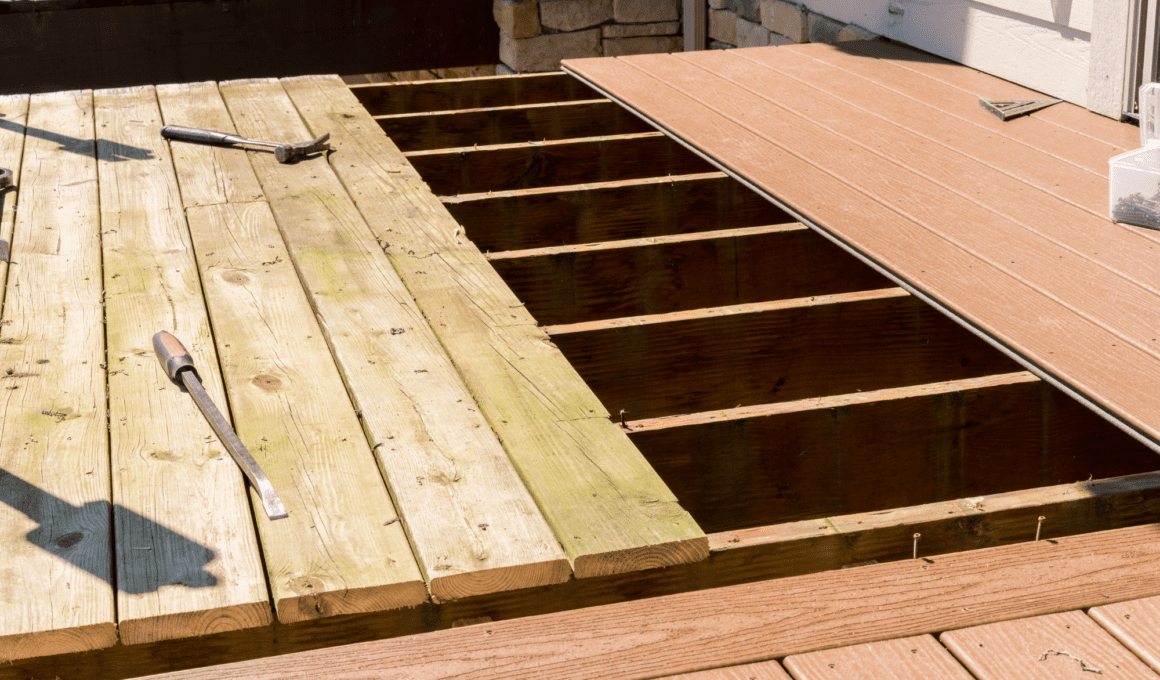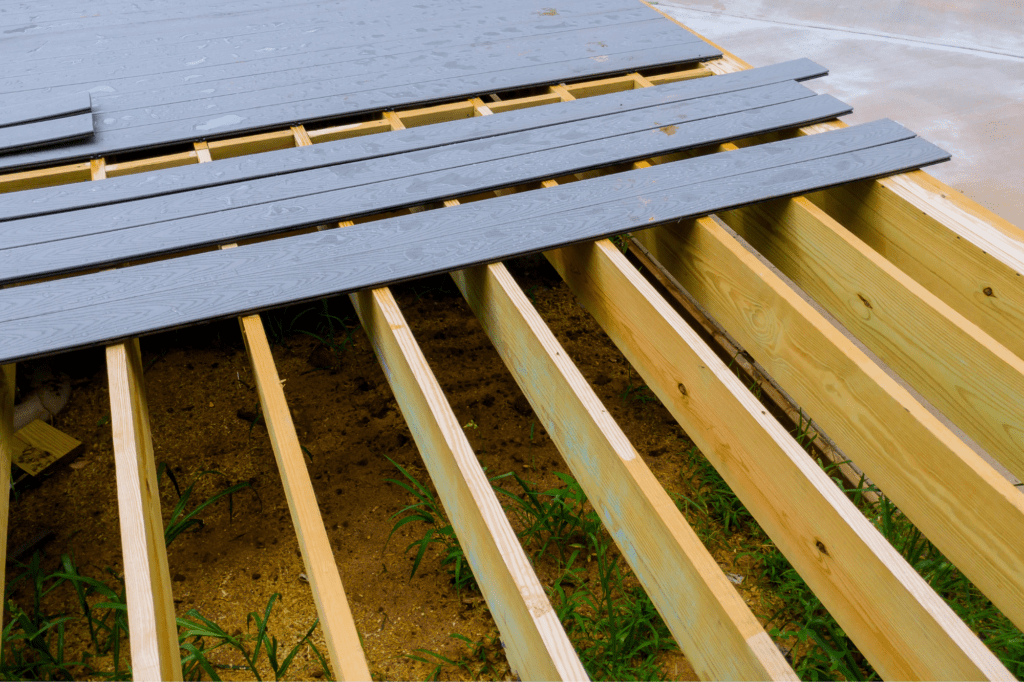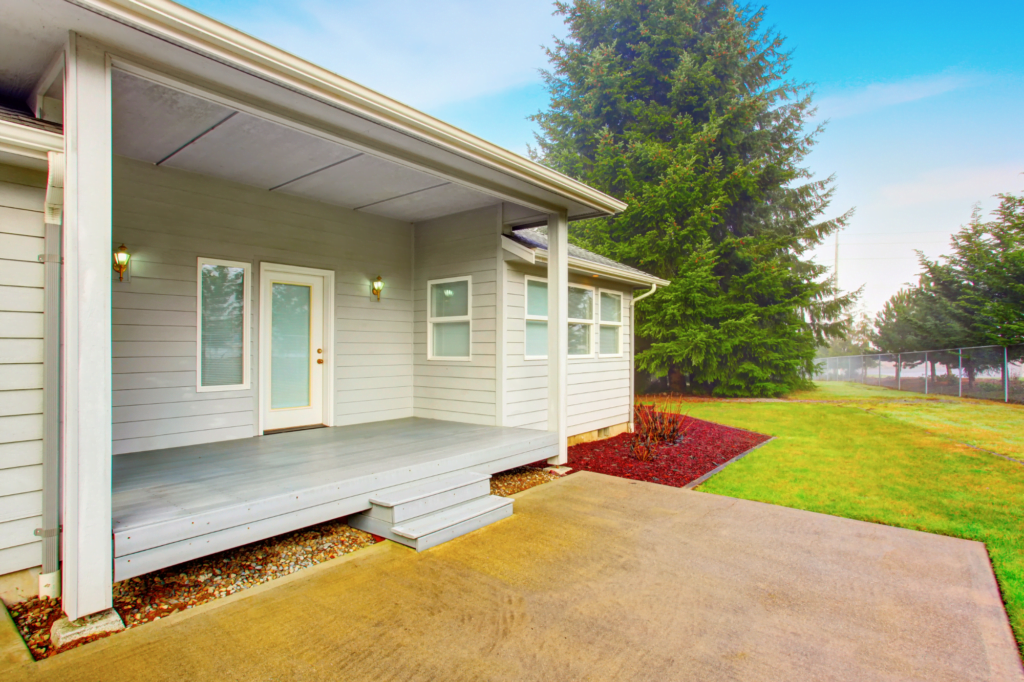Are you planning on building a new outdoor deck or upgrading your existing one? One of the most important decisions you’ll make is choosing the right material. PVC and composite decking are two popular options, each with its own set of advantages and considerations.
In this easy comparison guide, we’ll take a closer look at PVC and composite decking and explore the differences between them. We’ll examine factors such as durability, maintenance requirements, environmental impact, and cost to help you make an informed decision about which material is the best fit for your needs.
PVC Decking: Advantages and Features
PVC decking is a popular choice among homeowners looking for a durable and low maintenance decking option. Its advantages over other materials make it a great choice for outdoor decks.
Durability: PVC decking is incredibly durable and can withstand harsh weather conditions, making it perfect for outdoor use. It is resistant to moisture, fading, and staining, which means it can last for years without losing its color or texture.
Low maintenance: PVC decking requires minimal maintenance, making it an ideal choice for those who don’t want to spend too much time and effort on their deck. It doesn’t need to be sanded, stained, or sealed and can easily be cleaned with soap and water.
Eco-friendly: PVC decking is made from recycled materials and is 100% recyclable, making it an environmentally conscious choice. It doesn’t contain any harmful chemicals and doesn’t contribute to deforestation, making it a sustainable option for your outdoor space.
Texture: PVC decking comes in a variety of textures and colors, which means you can choose a design that suits your style and complements your home’s exterior. It can even mimic the look of wood without the maintenance requirements and potential rotting issues.
“PVC decking is incredibly durable and can withstand harsh weather conditions, making it perfect for outdoor use.”
Composite Decking: Benefits and Considerations
If you’re considering composite decking for your outdoor space, it’s important to weigh the benefits and potential drawbacks of this material.
One of the biggest advantages of composite decking is its durability. Made from a blend of wood fibers and plastic, composite decking is resistant to wear and tear, scratches, and weather damage. This results in a longer lifespan compared to other decking materials, making it a wise long-term investment.
Another benefit of composite decking is its low maintenance requirements. Unlike traditional wood decks that require periodic sealing, staining, and repainting, composite decking only needs occasional cleaning to maintain its appearance.
Composite decking is also an eco-friendly choice, as it often includes recycled materials. This makes it a sustainable option for those looking to reduce their environmental impact.
However, there are some considerations to keep in mind when choosing composite decking. While it requires less maintenance than traditional wood decking, it can still be prone to mildew and mold growth if not kept clean. Additionally, some composite decking can retain heat, leading to discomfort on hot days.
It’s also important to note that composite decking can be more expensive than other materials, though the longer lifespan and lower maintenance requirements may ultimately offset this cost.
“Composite decking is resistant to wear and tear, scratches, and weather damage. This results in a longer lifespan compared to other decking materials, making it a wise long-term investment.”
Cost Comparison: PVC vs Composite Decking
When it comes to choosing the best material for your outdoor deck, one of the most important factors to consider is the cost. PVC and composite decking have a reputation for being durable and low maintenance, but they come with different price tags. Here is a cost comparison between PVC and composite decking:
| Material | Average Cost per Square Foot (Materials Only) |
|---|---|
| PVC Decking | $8 – $12 |
| Composite Decking | $5 – $10 |
As you can see, composite decking is generally less expensive than PVC decking. However, it’s important to note that these prices are for materials only and do not include installation costs or any other additional expenses. The total cost of your deck will depend on factors such as the size of the deck, the complexity of the design, and the cost of labor in your area.
Another thing to consider is the long-term investment. While PVC decking may have a higher initial cost, its durability and low maintenance requirements could save you money in the long run. PVC decking is resistant to rot, insects, and fading, which means you won’t need to replace it as often as other materials. Composite decking is also durable, but it may require more maintenance over time.
If you’re on a tight budget, composite decking may be the better option. However, if you’re looking for a material that will last longer and require less maintenance, PVC decking might be worth the extra investment.
FAQ: PVC vs Composite Decking
Are PVC and composite decking materials environmentally friendly?
Both PVC and composite decking materials have eco-friendly options. PVC decking can be made from recycled plastic, whereas composite decking can be made from recycled materials such as wood fibers and plastic. It is important to research the specific brand and product to ensure they meet your eco-friendly standards.
Which material is more durable?
Both PVC and composite decking materials are known for their durability. PVC decking is highly resistant to scratches, stains, and fading. Composite decking, on the other hand, is highly resistant to moisture and rot. Ultimately, the choice between the two will depend on your specific needs and preferences.
Which material requires less maintenance?
Both PVC and composite decking materials are known for their low maintenance requirements. PVC decking is virtually maintenance-free, requiring only occasional cleaning with soap and water. Composite decking requires periodic cleaning and maintenance, such as power washing and resealing, to maintain its appearance and structural integrity.
Can PVC and composite decking be installed by homeowners?
Yes, both PVC and composite decking can be installed by homeowners. However, it is important to follow the manufacturer’s installation instructions carefully to ensure proper installation and safety. Additionally, some brands may require specific tools or equipment for installation.
Which material is better for outdoor decks?
The choice between PVC and composite decking materials will depend on your specific needs and preferences. PVC decking is highly durable, low maintenance, and resistant to scratches and fading. Composite decking is highly resistant to moisture and rot and is made from recycled materials. It is best to research the specific brands and products to find the one that meets your needs and budget.
Is one material more expensive than the other?
PVC decking tends to be more expensive than composite decking. However, the cost will depend on the specific brand and product. It is important to consider the long-term value and investment of both materials when making a decision.











